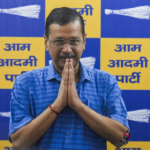Colombo, Sri Lanka – The Janatha Vimukthi Peramuna (JVP), one of Sri Lanka’s prominent leftist political movements, stands at a pivotal juncture in its history. Speaking at a recent press conference, JVP General Secretary Tilvin Silva expressed optimism about the party’s potential to influence the country’s political landscape significantly.
Silva stated that the JVP is better positioned than ever to address the pressing challenges facing Sri Lanka, including economic instability, corruption, and public dissatisfaction with traditional political powers. “This is our opportunity to rewrite history and bring about the transformative change the people of Sri Lanka have long awaited,” he declared, emphasizing the party’s dedication to a transparent and people-centric approach.
Reconnecting With the Masses
Silva highlighted the JVP’s renewed efforts to strengthen grassroots connections, a strategy he believes is key to their growing relevance. “The people are disillusioned with the status quo. They are looking for an alternative, and we are ready to be that alternative,” Silva remarked.
Under Silva’s guidance, the party has embarked on comprehensive reforms aimed at revitalizing its image. The JVP has been advocating for solutions to issues such as inflation, unemployment, and environmental sustainability while championing social equity and justice.
Overcoming Past Challenges
The JVP’s history has been marked by periods of both turbulence and progress. Silva acknowledged the party’s controversial past, including its involvement in uprisings during the 1970s and 1980s, but stressed that today’s JVP is committed to peaceful democratic engagement.
“Our past gives us strength, but our future is built on a foundation of unity and progress. We aim to build a nation that prioritizes the welfare of its citizens over the interests of a select few,” Silva said.
Building Momentum for the Future
As Sri Lanka prepares for upcoming elections, the JVP has ramped up its campaign efforts, focusing on youth engagement and policy-driven initiatives. The party’s vision, Silva noted, is to foster a sustainable and equitable future for all Sri Lankans.
Political analysts suggest that the JVP’s increasing popularity could disrupt the dominance of Sri Lanka’s two major political parties. Silva concluded his address by reiterating the JVP’s mission: “This is not just a chance for the JVP—it is a chance for the people of Sri Lanka to rewrite their destiny.”
Conclusion
As Sri Lanka grapples with political and economic uncertainty, the JVP’s efforts to position itself as a viable alternative may resonate with voters seeking change. Whether the party can indeed “rewrite history” remains to be seen, but Tilvin Silva’s declaration has undeniably set a tone of hope and determination for its supporters.










